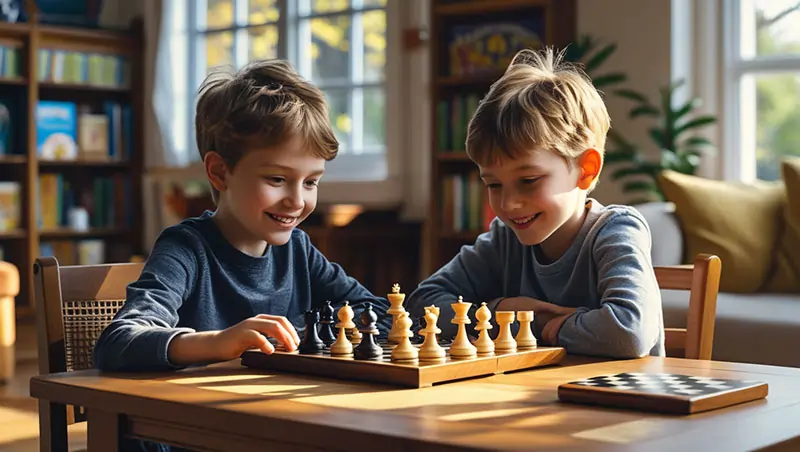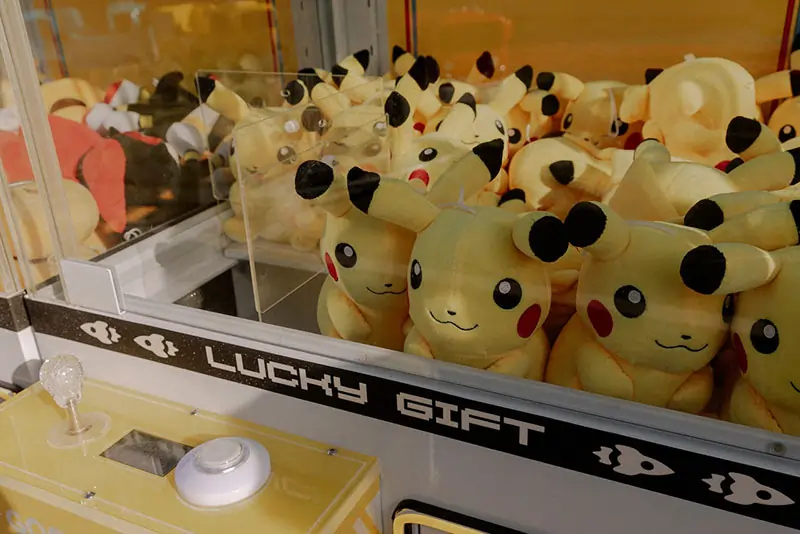Boosting Young Minds: How Classic Games Build Critical Skills
Classic games have a special kind of magic. They’re the games that families have played for generations—chess, checkers, backgammon, Mahjong—and they’re just as engaging today as they were decades ago. For kids, they’re not just fun ways to pass the time. They’re a chance to build critical skills, learn how to think ahead, and connect with people face-to-face in a world that’s often glued to screens.
The Power of Classic Games in Child Development
Classic games stick around because they’re more than simple pastimes—they’re layered, challenging, and social. Kids learn patience, improve memory, and sharpen their problem-solving skills without even realizing it. Every move, every roll of the dice, and every matched tile is a little brain workout.
Parents and teachers love these games because they can teach essential skills in a low-pressure setting. They create moments for connection—grandparents sharing the games they played as kids, siblings forming new traditions, or friends learning to compete without arguments. Many of these games are easy to pick up but take years to truly master, which means kids can grow with them and never get bored.
They’re good for emotional health, too. In a fast, tech-heavy world, sitting down to play a game gives kids (and adults) a chance to slow down. It’s a way to relax, laugh, and spend real time together. Even losing has its lessons—learning to handle frustration, celebrate someone else’s win, and keep going. If you’re looking for more ways to encourage fun learning at home, check out KidsWorldFun’s educational games and activities.
How Classic Games Build Critical Skills
Classic games naturally mix fun with skill-building. They get kids thinking ahead, adapting when things don’t go as planned, and using creativity to solve problems. When introducing classic games to your family round table, expect the following skills:
- Memory Enhancement: Remembering past moves strengthens working memory. This skill helps in school subjects like math, reading, and languages—and in everyday tasks like following multi-step directions. Practicing memory in a fun setting also takes away the pressure, making it easier to recall information when it counts.
- Strategic and Logical Thinking: Games like chess or backgammon encourage kids to plan ahead, weigh their options, and adjust when their plan hits a snag. Along the way, they’re learning about probability, trade-offs, and how to take smart risks.
- Concentration and Focus: Longer games teach patience and dedication. That kind of focus comes in handy for school projects, test-taking, and anything that requires sustained attention.
- Pattern Recognition: Spotting patterns in cards, tiles, or board layouts builds analytical thinking skills. It’s the same kind of thinking used in STEM subjects, coding, and problem-solving in general.
- Social Skills and Emotional Regulation: Taking turns, being a good sport, and playing fair are all part of the game. Over time, kids get better at communicating, resolving conflicts, and understanding other people’s perspectives.
These same skills carry over to school, sports, and everyday life. With them, you’ll find that your kids can handle social situations better on their own. They’ll feel more confident, knowing they’ve handled challenging situations independently, which will carry over into their school work. This will enable them to grow into their dream career in the future.
Types of Classic Games
Classic games come in all shapes and sizes, and each type brings something different to the table:
- Strategy Games: Chess, Go, and checkers build patience, planning, and critical thinking.
- Tile-Based Games: Mahjong and dominoes mix pattern recognition with a bit of luck and strategy.
- Dice and Probability Games: Backgammon and Yahtzee sneak in lessons about probability and risk.
- Word and Language Games: Scrabble and Boggle strengthen vocabulary and quick thinking. For more ideas, you can browse Merriam-Webster’s word games collection.
- Card Games: Rummy, Uno, and bridge develop memory, adaptability, and teamwork.
Mixing different kinds of games keeps kids interested. It enables kids to flex a wide range of mental muscles—math, language, creativity, logic, and even a little psychology when they try to guess an opponent’s next move. Even better, it gives kids the chance to learn which games they like the best, which can give them the voice they need while growing up.
Making Classic Games Fun and Accessible
To get kids hooked on classic games, it helps to make a few adjustments so they feel approachable and exciting:
- Simplify the Rules: Start small and add complexity later.
- Use Kid-Friendly Materials: Bright, oversized pieces are more manageable for little hands.
- Keep Sessions Short: Avoid burnout and keep the game lighthearted.
- Tie into Learning Goals: Add counting, storytelling, or problem-solving challenges.
- Encourage Group Play: The more, the merrier—and the more social skills they’ll develop.
- Mix Classic with Modern: Pair old favorites with newer games to keep things fresh.
When you introduce games early into your kids’ development, they can turn into lifelong hobbies. As kids get older, the games can evolve with them, offering new challenges and keeping the tradition alive.
Final Thoughts
Classic games offer something screens can’t: a hands-on, face-to-face way to connect while learning. They challenge the brain, encourage cooperation, and create traditions worth passing on. Whether it’s chess with a grandparent, a fast-paced round of Uno with friends, or a family domino night, these games build skills that last far beyond the game board.



